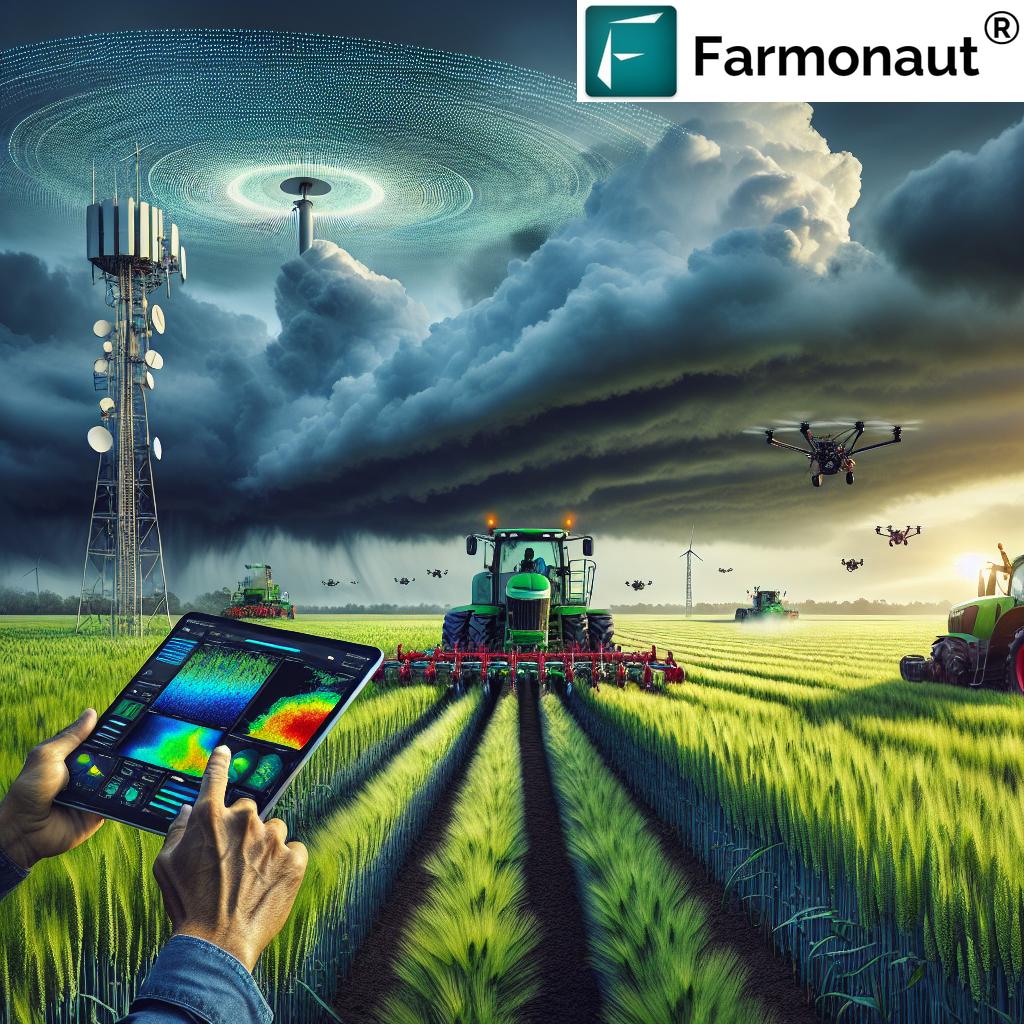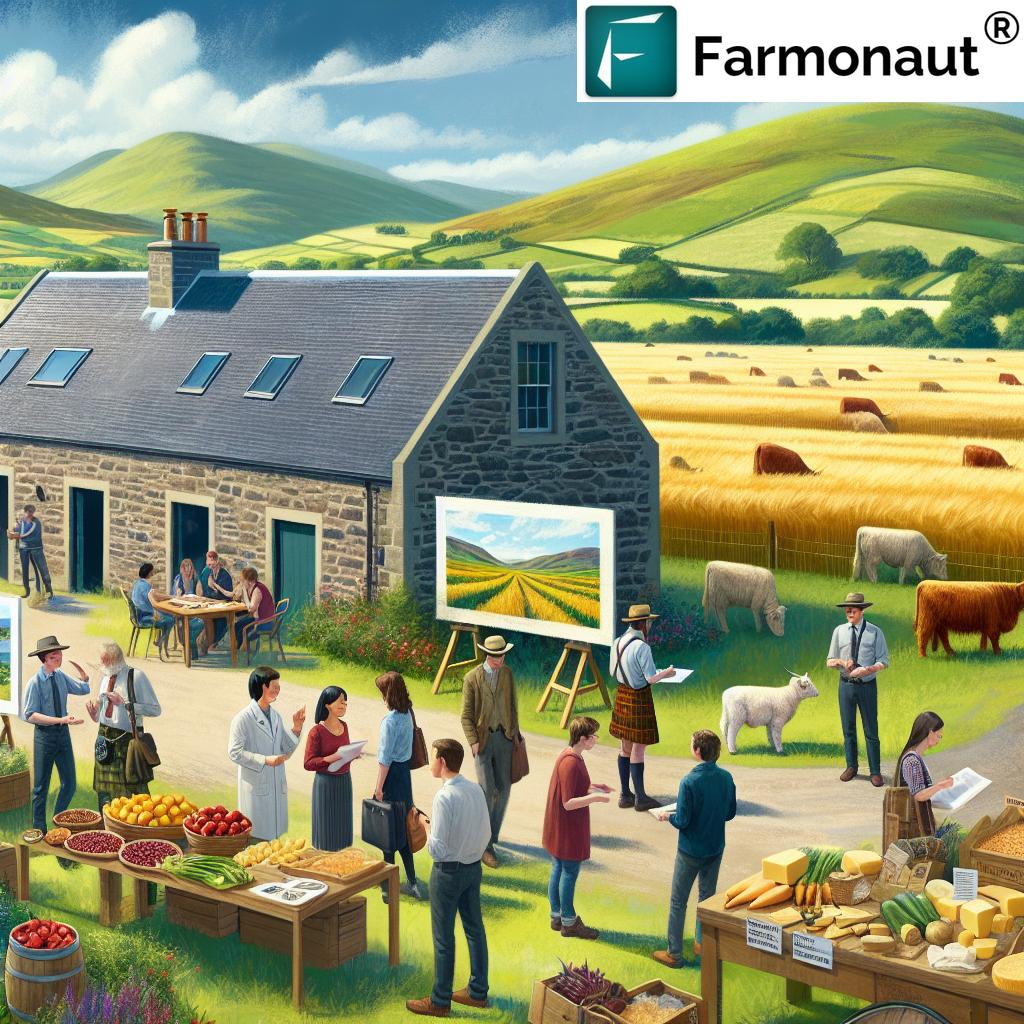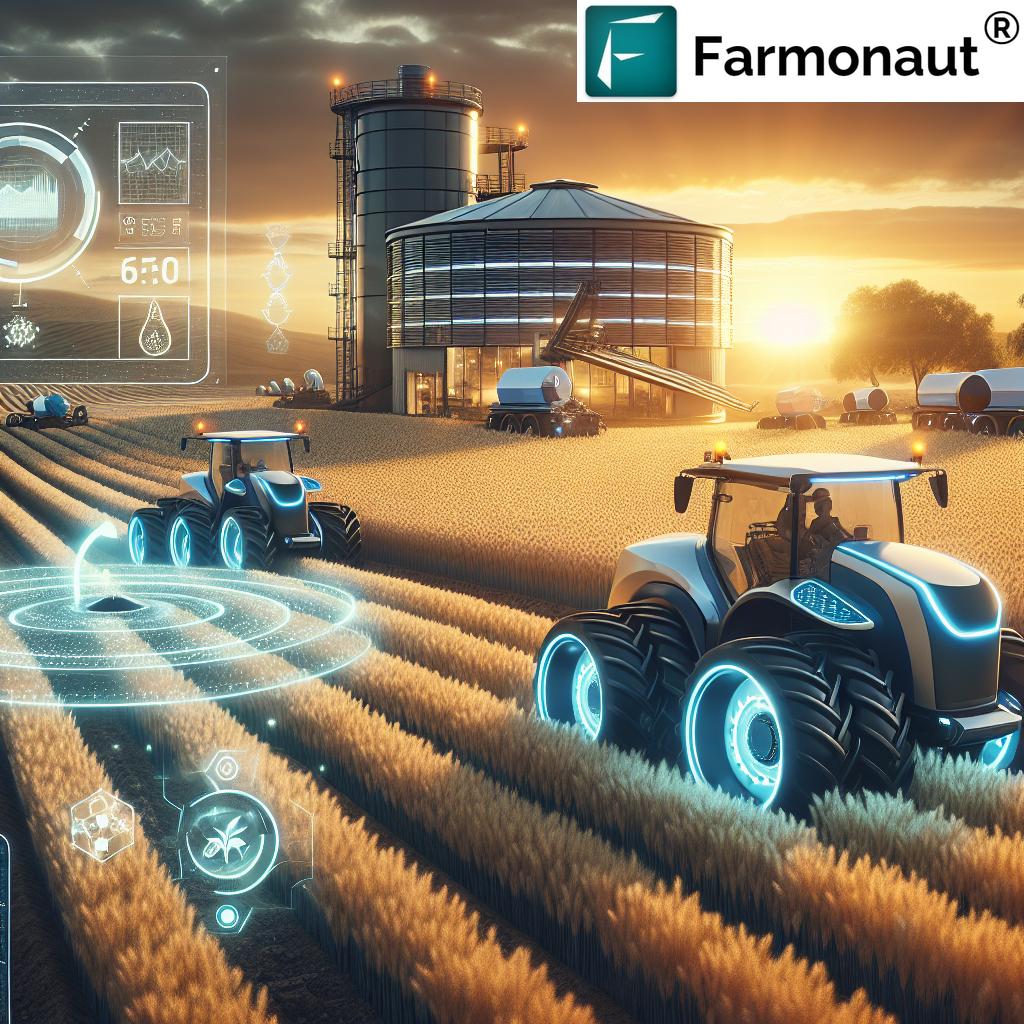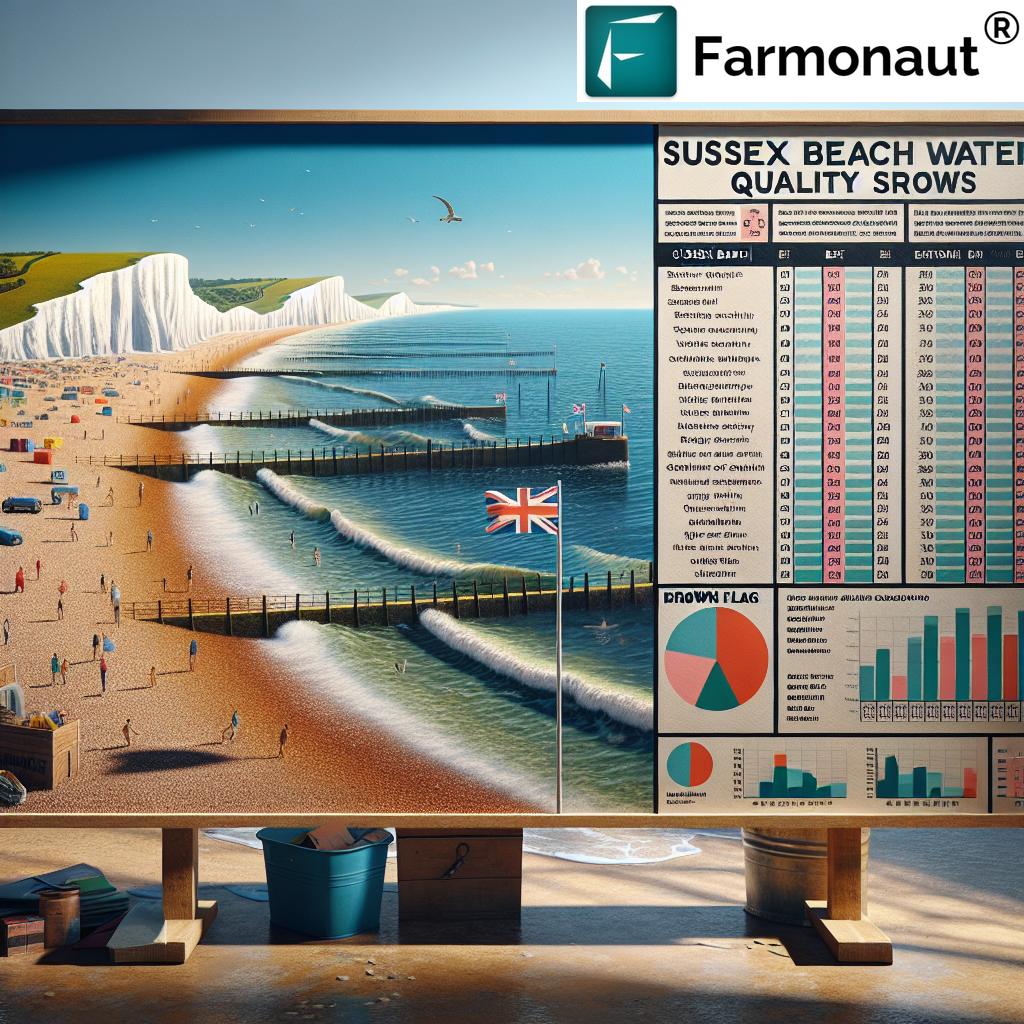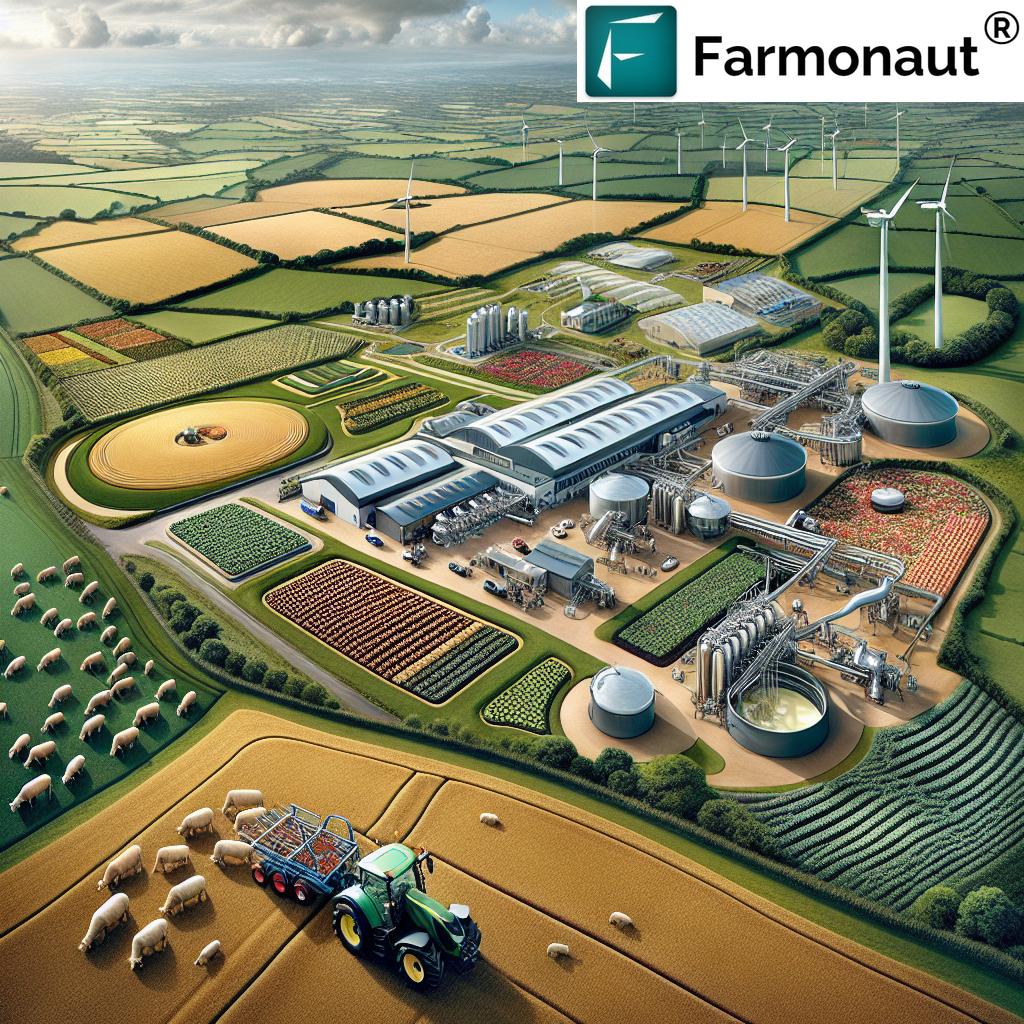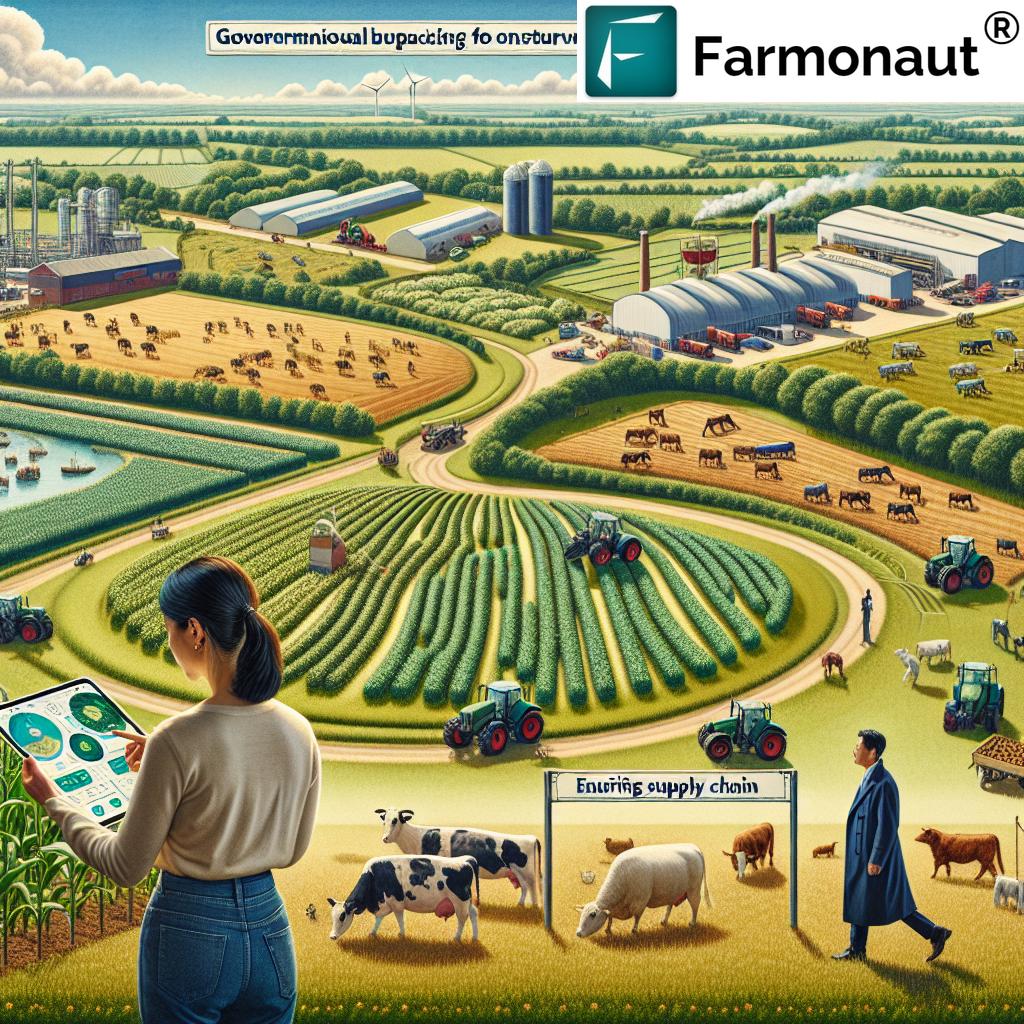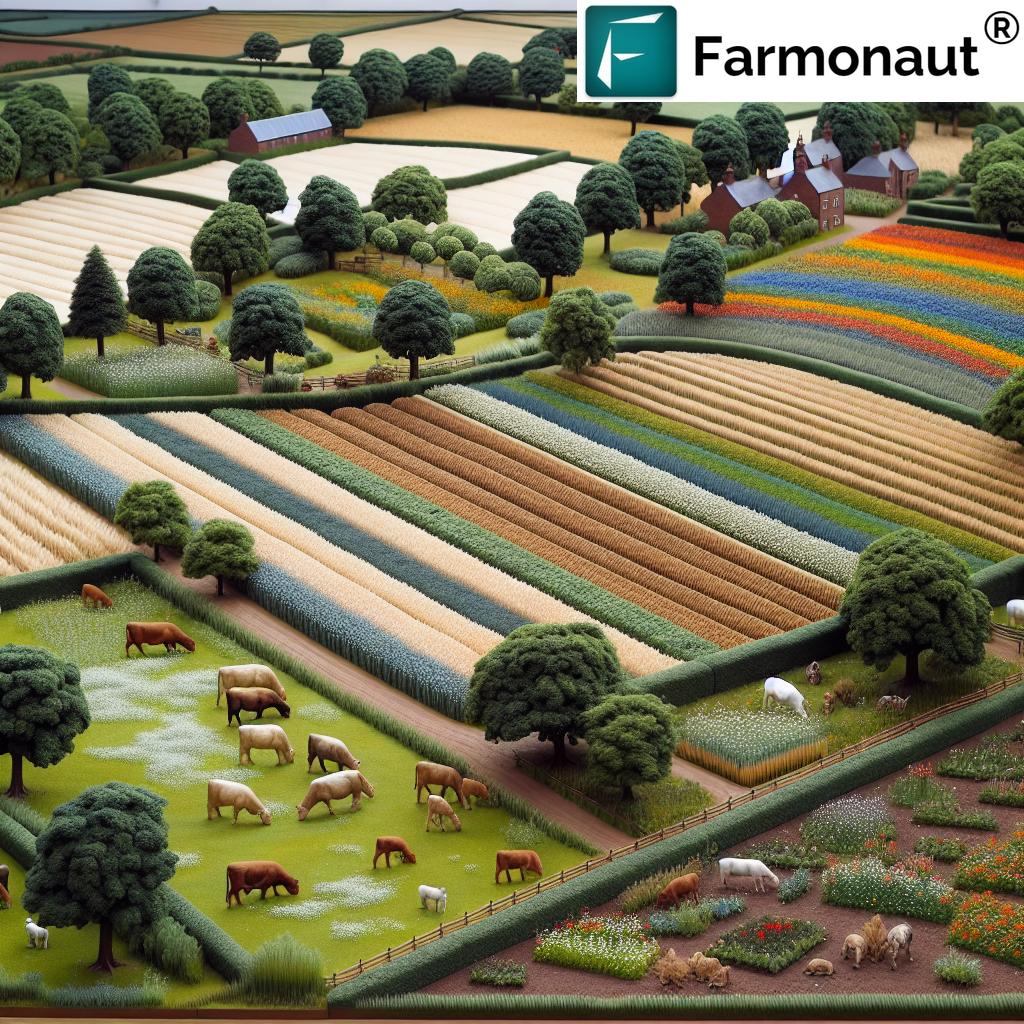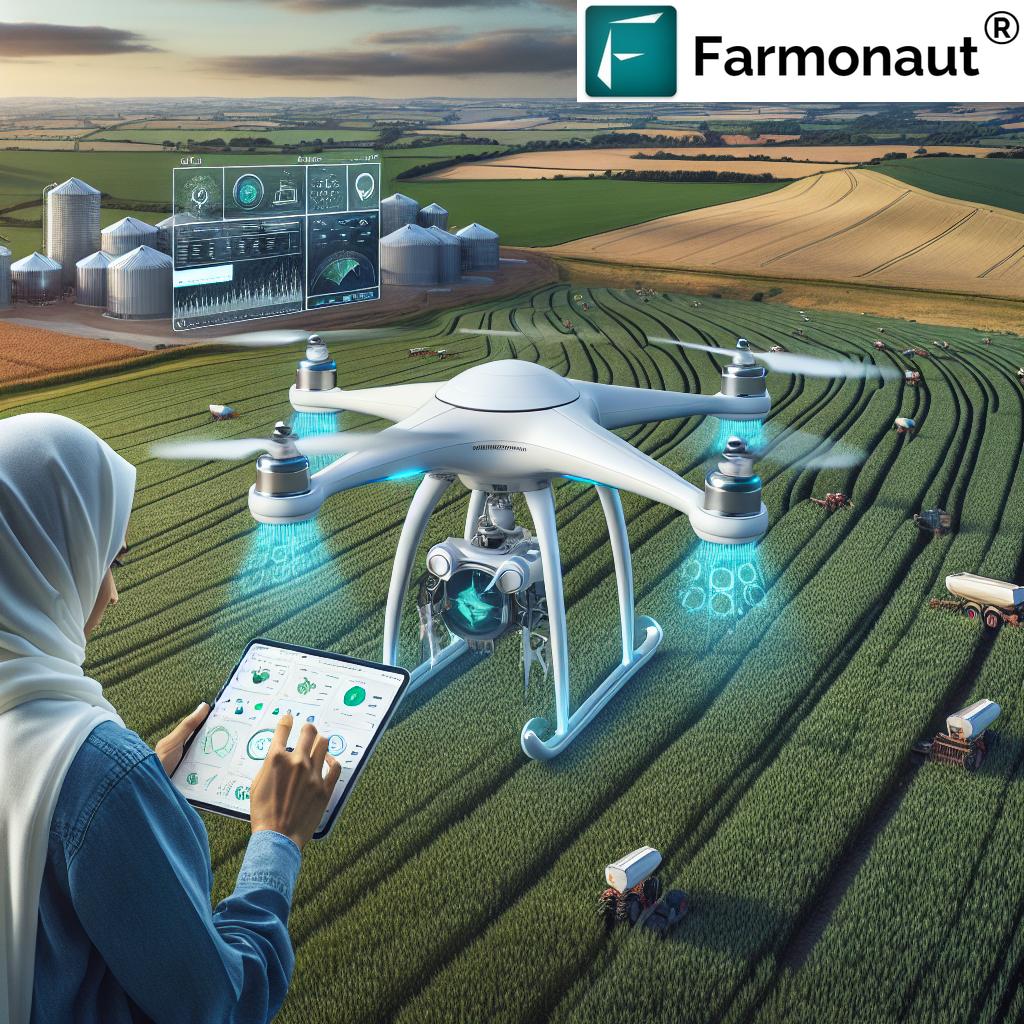Revolutionizing UK Food Safety: How AI and Blockchain Enhance Traceability and Combat Fraud
“Food fraud costs the UK billions of pounds annually, driving the need for innovative agritech solutions.”
In the ever-evolving landscape of agriculture and food production, the United Kingdom stands at the forefront of a technological revolution that promises to transform how we ensure food safety, combat fraud, and enhance traceability across the entire supply chain. As we delve into this exciting realm of innovation, we’ll explore how cutting-edge technologies like artificial intelligence (AI), blockchain, and advanced biosensors are reshaping the future of British agriculture and food safety.
The Pressing Need for Innovation in UK Food Safety
The UK’s food industry is a cornerstone of the nation’s economy and culture. However, it faces significant challenges, particularly in the realm of food safety and fraud prevention. With food fraud costing the country billions of pounds annually, there’s an urgent need for robust solutions that can safeguard our food supply and maintain consumer trust.
This is where modern food traceability systems and advanced food safety technology come into play. These innovations are not just incremental improvements; they represent a paradigm shift in how we approach food safety, quality control, and supply chain management.
AI and Blockchain: The Dynamic Duo of Food Safety
At the heart of this revolution are two transformative technologies: artificial intelligence and blockchain. Let’s explore how these technologies are working in tandem to create unprecedented levels of transparency and security in the food supply chain.
Artificial Intelligence: The Sentinel of Food Safety
AI for food fraud prevention is rapidly becoming an indispensable tool in the arsenal of food safety professionals. Here’s how AI is making a difference:
- Pattern Recognition: AI algorithms can analyze vast amounts of data to detect anomalies that might indicate fraudulent activities.
- Predictive Analytics: By processing historical data, AI can predict potential food safety risks before they become critical issues.
- Real-time Monitoring: AI-powered systems can continuously monitor various parameters in food production and distribution, alerting authorities to any deviations from safety standards.
One of the companies at the forefront of this AI revolution is Farmonaut. Their advanced AI systems, accessible through their web app, Android app, and iOS app, provide farmers and food producers with powerful tools for crop monitoring and management.
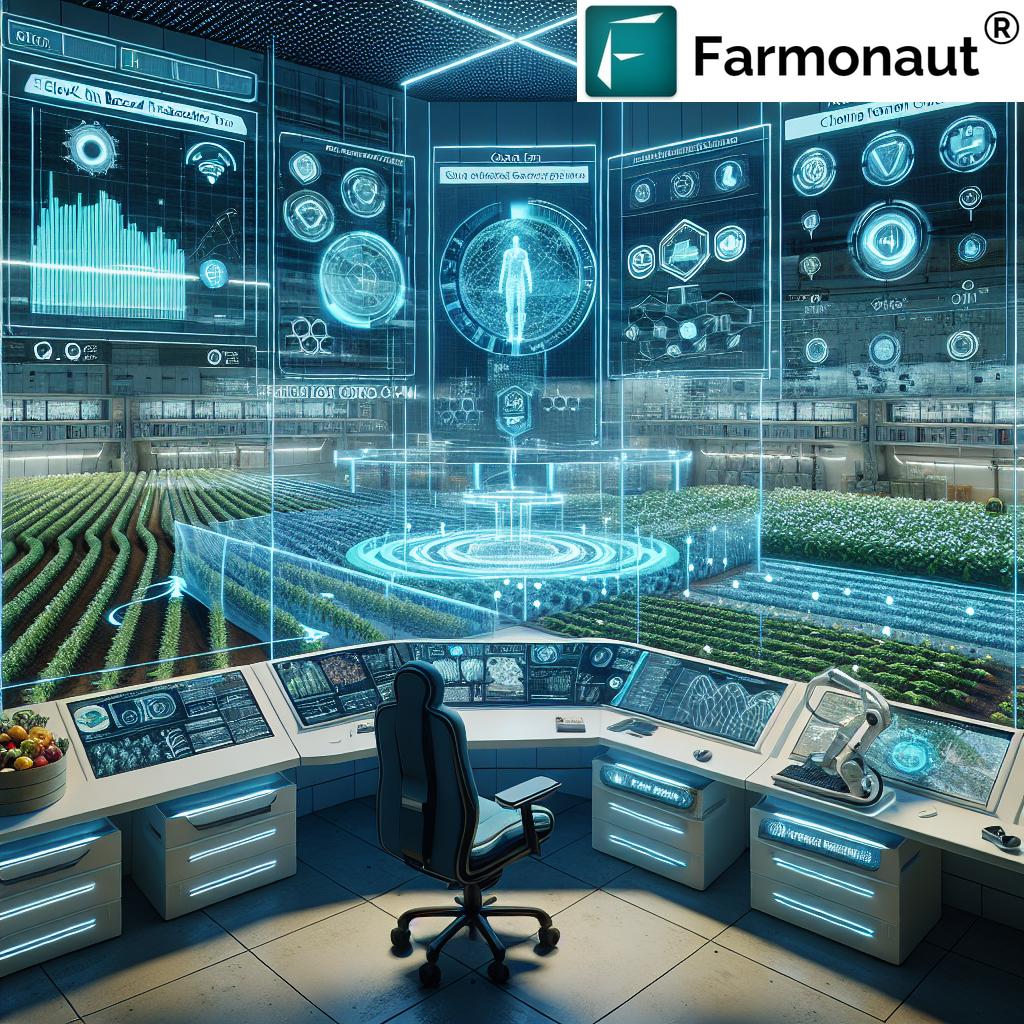
Blockchain: The Ledger of Trust
Blockchain in agriculture is revolutionizing how we track and verify food products from farm to fork. This technology offers several key advantages:
- Immutable Records: Once data is recorded on the blockchain, it cannot be altered, ensuring the integrity of the information.
- Transparency: All stakeholders in the supply chain can access and verify the information, promoting trust and accountability.
- Traceability: Products can be tracked in real-time, allowing for quick identification of the source in case of food safety issues.
Farmonaut’s blockchain-based traceability solutions are helping to create a more transparent and secure food supply chain. By leveraging this technology, we can significantly reduce the incidence of food fraud and enhance consumer confidence in British food products.
Biosensors: The Microscopic Guardians of Food Quality
While AI and blockchain provide the digital infrastructure for food safety, biosensors in farming offer a physical layer of protection. These tiny devices can detect a wide range of contaminants, pathogens, and quality indicators directly in the field or during processing.
Key applications of biosensors include:
- Rapid detection of foodborne pathogens
- Monitoring of pesticide residues
- Assessment of food freshness and quality
By integrating biosensors with AI and blockchain technologies, we’re creating a comprehensive system that can monitor food safety from the moment seeds are planted to the time products reach consumers’ plates.
Smart Farming Solutions: The Future of Agriculture
The concept of smart farming is revolutionizing how we approach agriculture in the UK. By integrating various technologies, we’re creating a more efficient, sustainable, and safe food production system.
Key components of smart farming include:
- Precision Agriculture: Using satellite imagery and AI to optimize crop management
- IoT Sensors: Monitoring soil conditions, weather patterns, and crop health in real-time
- Automated Systems: Improving efficiency in irrigation, fertilization, and pest control
Farmonaut’s satellite-based farm management solutions are at the cutting edge of these smart farming technologies. Their platform provides farmers with invaluable insights that can help improve yields, reduce costs, and ensure food safety.
“Blockchain and AI technologies in agriculture offer 100% transparency in the food supply chain, enhancing quality control.”
The Impact on UK Food Safety Standards
The adoption of these agritech innovations is having a profound impact on UK food safety standards. The Food Standards Agency (FSA) is actively encouraging the integration of these technologies to enhance food safety measures across the country.
Benefits of these technological advancements include:
- Faster identification and resolution of food safety issues
- Improved compliance with food safety regulations
- Enhanced consumer trust in British food products
- Reduction in food waste due to better quality control
As these technologies become more widespread, we can expect to see a significant reduction in food-related illnesses and a boost in consumer confidence in the safety and quality of British food products.
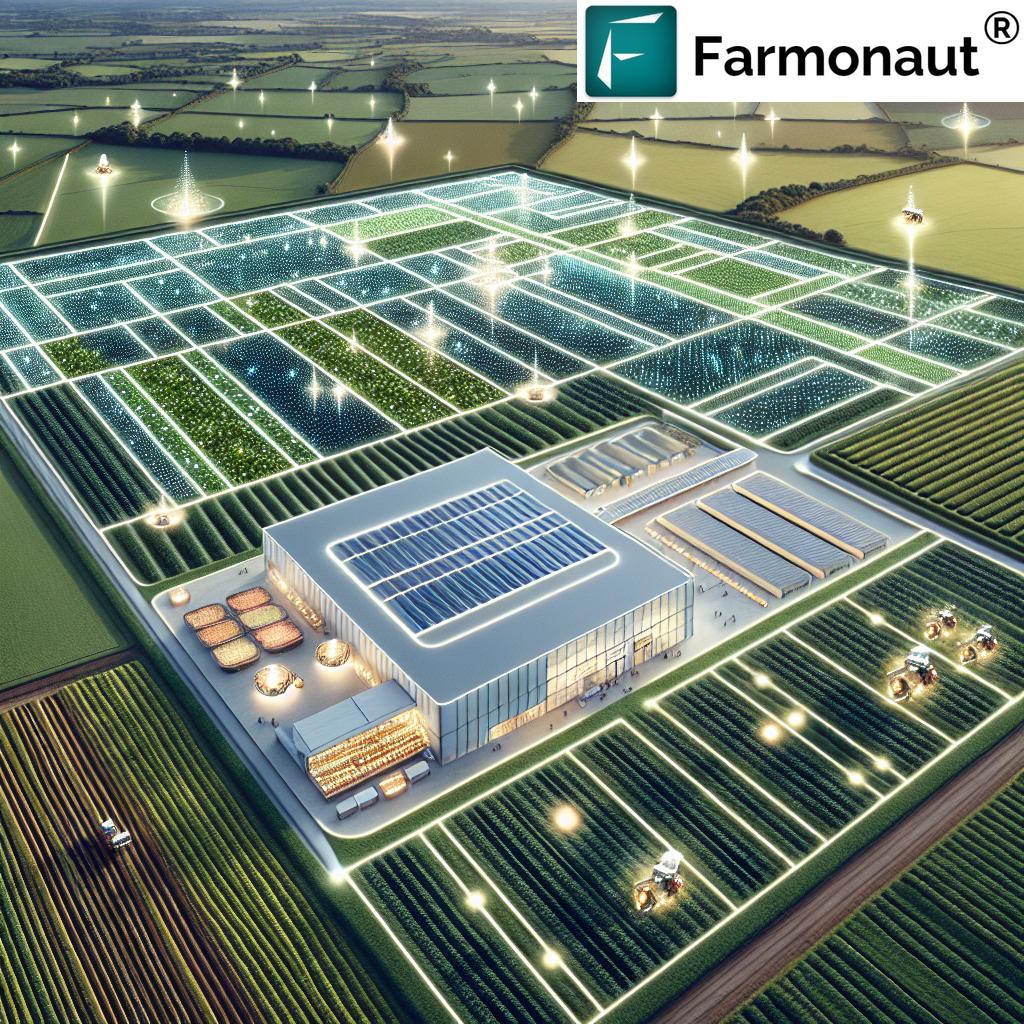
The Role of Government and Policy in Agritech Adoption
The UK government plays a crucial role in fostering the adoption of these innovative technologies. Through supportive policies and funding initiatives, the government is helping to accelerate the integration of AI, blockchain, and biosensors in the agricultural sector.
Key government initiatives include:
- Funding for agritech research and development
- Creation of regulatory frameworks that facilitate technology adoption
- Collaboration with industry leaders to set standards for food traceability and safety
These efforts are essential in ensuring that the UK remains at the forefront of agricultural innovation and food safety.
The Economic Impact: Reducing Costs and Boosting Efficiency
While the primary goal of these technologies is to enhance food safety, they also offer significant economic benefits to farmers and the food industry as a whole. By implementing smart farming solutions and advanced traceability systems, businesses can:
- Reduce operational costs through optimized resource management
- Minimize losses due to food spoilage and recalls
- Increase consumer trust, potentially leading to higher market demand
- Access new markets that require stringent traceability measures
Farmonaut’s technology, for instance, helps farmers optimize their operations, potentially leading to substantial cost savings and increased profitability.
Consumer Impact: Building Trust Through Transparency
In an era where consumers are increasingly conscious about the origin and safety of their food, these technological advancements play a crucial role in building and maintaining trust. By providing end-to-end traceability and real-time information about food products, we’re empowering consumers to make informed choices.
Benefits for consumers include:
- Access to detailed information about food origin and processing
- Increased confidence in food safety and quality
- Ability to support sustainable and ethical farming practices
- Reduced risk of purchasing fraudulent or unsafe food products
As these technologies become more prevalent, we can expect to see a shift in consumer behavior towards more informed and conscious food choices.
Challenges and Future Outlook
While the potential of these technologies is immense, their implementation is not without challenges. Some of the key hurdles include:
- Initial costs of technology adoption for smaller farms
- Need for standardization across the industry
- Data privacy and security concerns
- Training and education for farmers and industry professionals
However, as these technologies mature and become more accessible, we can expect to see wider adoption across the UK’s agricultural sector. Companies like Farmonaut are working to make these advanced technologies more accessible to farms of all sizes through their user-friendly apps and API.
Comparative Analysis of Food Safety Technologies in the UK
| Technology | Primary Function | Estimated Impact on Traceability | Potential Reduction in Food Fraud (%) | Implementation Challenges | Estimated Cost Savings for Farmers (£/year) |
|---|---|---|---|---|---|
| Blockchain in Agriculture | Immutable record-keeping and transparency | High | 30-40% | Integration with existing systems, industry-wide adoption | 10,000 – 50,000 |
| AI for Food Fraud Prevention | Anomaly detection and predictive analytics | Medium | 20-30% | Data quality, algorithm accuracy | 15,000 – 60,000 |
| Biosensors in Farming | Real-time contaminant and pathogen detection | Medium | 15-25% | Sensor durability, integration with other systems | 5,000 – 20,000 |
| Smart Farming Solutions | Precision agriculture and resource optimization | High | 10-20% | Initial investment, farmer training | 20,000 – 100,000 |
| Real-time Monitoring Systems | Continuous surveillance of production processes | High | 25-35% | Data management, system reliability | 12,000 – 40,000 |
The Role of Farmonaut in the UK’s Agritech Revolution
As we’ve explored the various technologies revolutionizing UK food safety, it’s important to highlight the role of innovative companies like Farmonaut in driving this transformation. Farmonaut’s advanced satellite-based farm management solutions are helping farmers across the UK to optimize their operations and contribute to a safer, more efficient food system.
Key features of Farmonaut’s technology include:
- Real-time crop health monitoring using satellite imagery
- AI-powered advisory systems for optimal farm management
- Integration with blockchain for enhanced traceability
- Resource management tools for improved efficiency
By leveraging these tools, UK farmers can not only improve their productivity but also play a crucial role in enhancing food safety and traceability across the supply chain.
Conclusion: A Safer, More Transparent Future for UK Food
As we look to the future, it’s clear that the integration of AI, blockchain, and advanced biosensors will continue to transform the UK’s food safety landscape. These technologies offer unprecedented opportunities to combat food fraud, enhance traceability, and build consumer trust.
By embracing these innovations, the UK can:
- Maintain its reputation for high-quality food production
- Reduce the economic impact of food fraud
- Enhance the efficiency and sustainability of its agricultural sector
- Provide consumers with safer, more transparent food choices
As we continue to navigate this technological revolution, companies like Farmonaut will play a crucial role in making these advanced solutions accessible to farmers and food producers across the UK. Together, we can build a safer, more transparent, and more efficient food system for all.
FAQ Section
Q: How does AI contribute to food fraud prevention?
A: AI analyzes vast amounts of data to detect anomalies and patterns that might indicate fraudulent activities. It can predict potential risks and continuously monitor various parameters in food production and distribution.
Q: What are the main benefits of blockchain in agriculture?
A: Blockchain provides immutable records, transparency across the supply chain, and real-time traceability of food products from farm to fork, significantly reducing the risk of fraud and enhancing consumer trust.
Q: How do biosensors improve food safety?
A: Biosensors can rapidly detect foodborne pathogens, monitor pesticide residues, and assess food freshness and quality directly in the field or during processing, providing an additional layer of safety.
Q: What role does the UK government play in promoting agritech adoption?
A: The UK government supports agritech adoption through funding initiatives, creating supportive regulatory frameworks, and collaborating with industry leaders to set standards for food traceability and safety.
Q: How can farmers benefit from these new technologies?
A: Farmers can benefit through reduced operational costs, minimized losses due to spoilage, increased consumer trust, and access to new markets that require stringent traceability measures.
For more information on how Farmonaut’s technology can help revolutionize your farming practices and contribute to enhanced food safety, visit our website and explore our web app, Android app, and iOS app. Developers interested in integrating our satellite and weather data can refer to our API Developer Docs.
Together, let’s build a safer, more transparent future for UK food!

